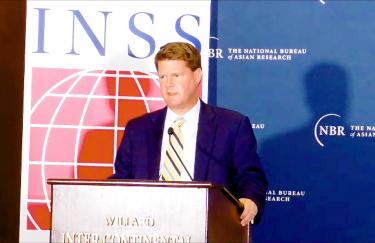Taiwan has made “significant” progress in improving rights for Muslims, the US Department of State said on Friday in its International Religious Freedom report for last year.
The report cited the Chinese-Muslim Association as saying: The “authorities were making significant progress in improving rights for Muslims,” such as by increasing the number of restaurants and hotels that cater to Muslims’ dietary requirements and establishing prayer rooms for them.













